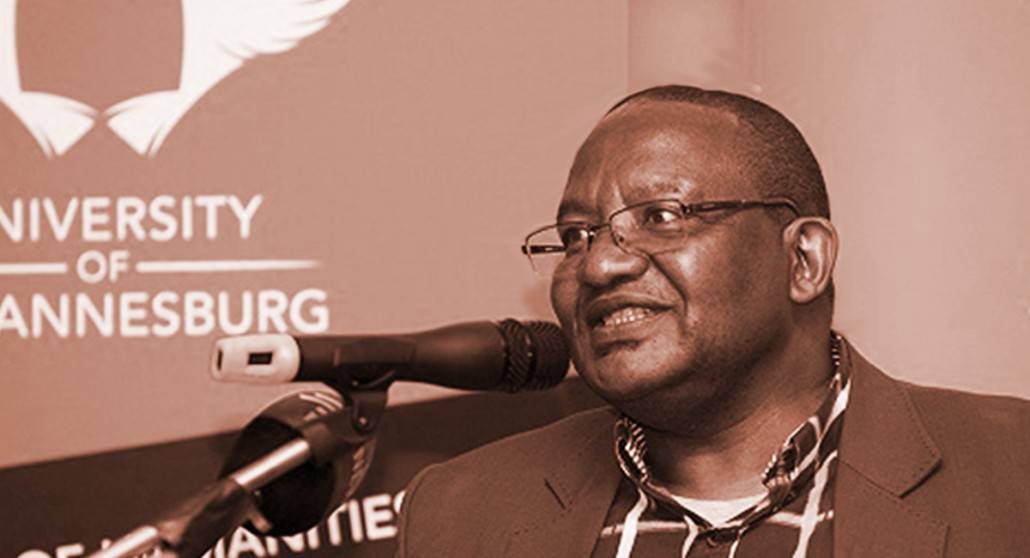Source: University of Johannesburg
The University of Johannesburg (UJ) hosted the ninth Annual Helen Joseph Memorial Lecture on Thursday, 27 August 2015. This year’s speaker, Advocate Vusi Pikoli, tackled the question: Is an independent judiciary a threat to democracy? Pikoli is currently the Western Cape police ombudsman, and was the national director of public prosecutions from 2005 to 2007. He is a Corruption Watch board member.
The Helen Joseph Memorial Lecture, hosted by UJ’s Faculty of Humanities and the Centre for Social Development in Africa, is an event that honours the renowned anti-apartheid activist, one of the leaders in the iconic 1956 Women’s March to the Union Buildings.
Delivering the Helen Joseph lecture last week, Advocate Vusi Pikoli said that the reason the executive frequently found itself having to answer to the courts was because politicians were loath to obey the law. Image: UJ.
Pikoli paid homage to women, including Joseph, who selflessly contributed to the freedom of South Africa. He emphasised that strengthening our democracy is the best way to honour them.
Speaking frankly and passionately, Pikoli addressed the importance of the independence of the judiciary, an issue that has become contentious in recent months owing to the tensions between the country’s judges and the executive. He described the tensions as an attack on the judiciary, saying: “Please note that I am calling these attacks and not criticism of the judiciary because this is what they are. How else does one categorise utterances that ‘judgments of certain regions and judges are consistently against the state’ which creates an impression of negative bias by ‘elements within the judiciary’?”
He argued that if the executive is constantly criticising the judiciary, the authority of the courts and the justice system is likely to be undermined, leading to erosion of public confidence, which in turn diminishes the integrity and impartiality of the judges.
Of the oft-stated claim that the judiciary is over-reaching into the executive, Pikoli said that there are various factors that invalidate this claim. These factors include the power of the president to pardon offenders, despite any misgivings that the judiciary might harbour, and that of the executive to grant parole to offenders – even questionable medical parole – as well as the fact that the government has previously disobeyed court orders without any repercussions.
“It is the politicians themselves who often consciously or unconsciously invite courts to intervene in their matters by not following the law.”
Coincidentally, his address took place the same day that President Jacob Zuma and members of his executive met with the judges, including the chief justice Mogoeng Mogoeng, in an effort to discuss and resolve the issues.
Having served at various organisations, including government, corporate and civil, Pikoli’s address illustrated a deep and passionate understanding of the country’s constitution and organs of state. He took a thoughtful look at the constitution, explaining how it is binding for all members of South Africa including individuals, government employees, members of Parliament and even members of the judiciary.
“In simple terms, not only are the executive and legislature bound [by the constitution], but also the judiciary itself is bound by the constitution – something which the politicians often seem to miss,” said Pikoli.
He called on all South Africans to rise to protect the independence of the judiciary and also lauded Mogoeng for calling a meeting with the executive to address the tensions between them. “Tensions can be healthy for as long as they are not antagonistic and irreconcilable.”
Pikoli concluded with the call: “Hands off our judiciary.”
About the Helen Joseph Lecture
Every year the lecture attracts people from different walks of life and this year was no different, with included academics, government employees, corporate executives, civil organisations, students and the working class in attendance.
Past speakers include UJ political science professor Shireen Hassim (2014); UJ professor of social development studies Leila Patel (2013); and public protector Thuli Madonsela (2012).

